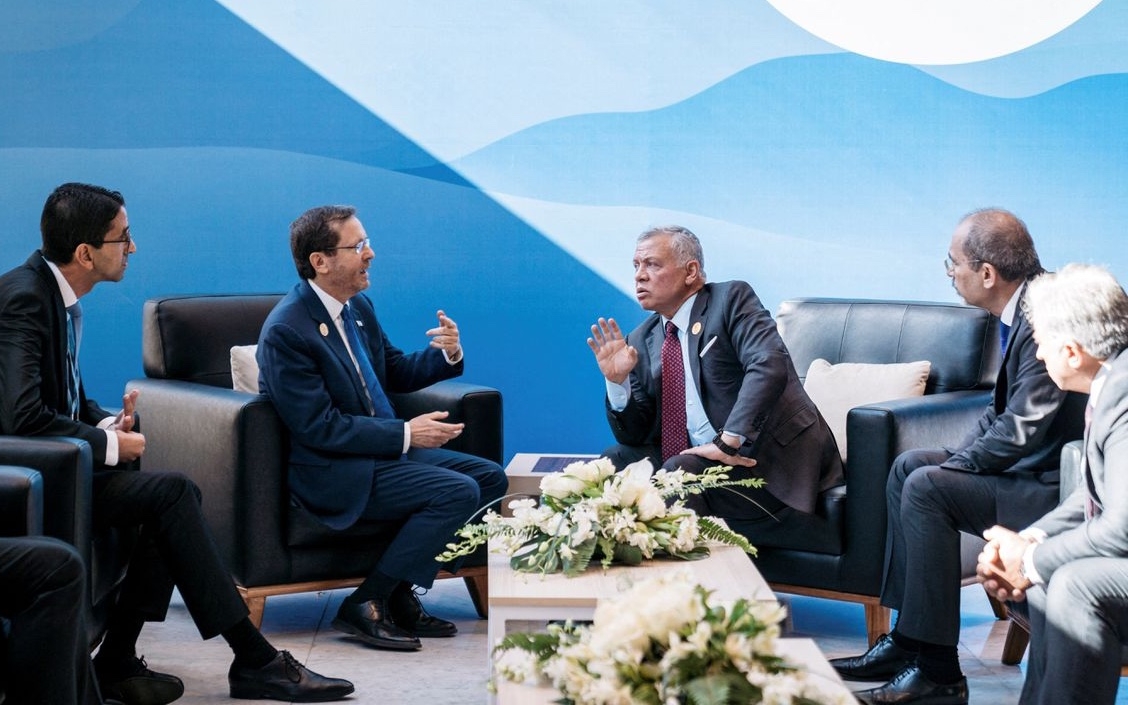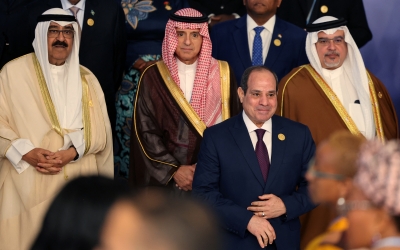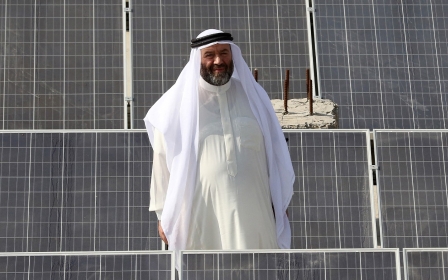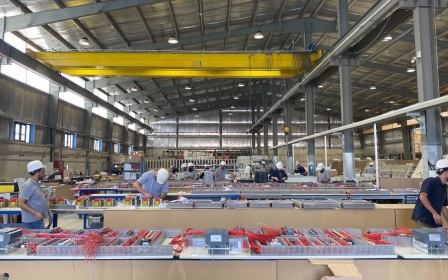Israel and Jordan advance water-for-energy deal

Israel and Jordan on Tuesday signed a memorandum of understanding (MOU) to move ahead with a water-for-energy deal on the sidelines of Cop27 at the Egyptian resort of Sharm el-Sheikh.
The deal, initially agreed upon by the two countries last November, will see Jordan build a solar plant with the capacity to export 600 megawatts of energy to Israel. In return, Israel will supply Jordan with 200 million cubic metres of desalinated water.
The UAE, which backed the plan along with the US, hosted the signing ceremony in the presence of Sultan Ahmed al-Jaber, UAE climate envoy and industry minister, and US special envoy for climate John Kerry.
Emirati state-owned company Masdar is slated to construct the solar farm in Jordan. Once operational, the plant is expected to produce two percent of Israel's energy by 2030. Israel will make payments of $180m per year to the Jordanian government and the Emirati company.
It is the first such deal between Israel and Jordan. Although the two established official diplomatic relations in 1994 and engage in security and economic matters, their ties are kept mostly out of the public sphere.
Cooperation with Israel has historically prompted popular backlash in Jordan, a country of 10 million that is home to around three million Palestinians.
The UAE, on the other hand, has openly embraced ties with Israel, including people-to-people activities such as tourism. The wealthy petrostate normalised relations with Israel in 2020 as part of the US-brokered Abraham Accords.
The Hashemite Kingdom of Jordan is one of the most water-scarce countries in the world. Amman already obtains 55 million cubic metres of water from Israel, as stipulated in their 1994 peace agreement.
The MOU comes as Abu Dhabi looks to position itself for Cop28, which is to be held in the UAE next year.
The UAE is one of the world’s top investors in green energy and is already home to the largest single-site solar park in the world. Last week, the UAE signed a strategic partnership with the US that will see $100bn invested to develop 100 gigawatts of clean energy by 2035.
Middle East Eye propose une couverture et une analyse indépendantes et incomparables du Moyen-Orient, de l’Afrique du Nord et d’autres régions du monde. Pour en savoir plus sur la reprise de ce contenu et les frais qui s’appliquent, veuillez remplir ce formulaire [en anglais]. Pour en savoir plus sur MEE, cliquez ici [en anglais].





